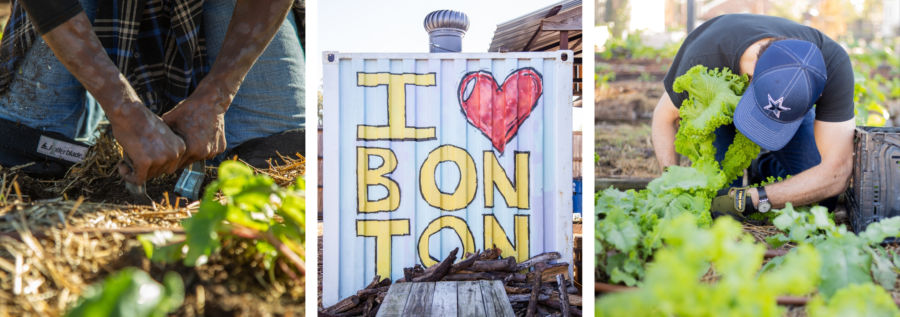By Roy Maynard, Senior Writer at Texas Public Policy Foundation
DALLAS—Bonton was supposed to be a haven from the crime, the drugs and the poverty. That’s how Daris Lee’s father found himself in the small, secluded Dallas community. Daris’ father was sent from California to live with relatives in Bonton. But it proved to be no haven at all; Daris’ father soon became involved with drugs. Later, Daris grew up watching his father struggle—only to follow that path himself.
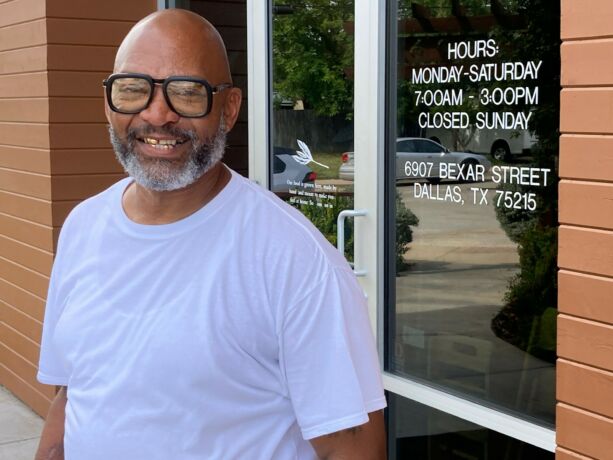
“At the time, Bonton was one of the worst communities in Dallas to live,” Daris explains. “This community was formed from segregation. They just pushed black people back, past the railroad tracks, past the lake and freeway, and that divided us from opportunities.”
In fact, Bonton’s main artery ends at the Trinity River levee. Bonton is a literal dead-end.
At least, it was—until 2012, when a new ministry opened in the area. Bonton Farms is rebuilding the community by redeeming lives and restoring hope.
Daris’ Story
“My dad went to college, had a good job, but got introduced to drugs, and he became a drug addict,” Daris, now 50, recounts. “With him being an educated guy, I saw how everyone loved him and respected him, but he went to being a drug addict and I knew I didn’t want that for myself. But I didn’t see any other options.”
What he did see was the illusion of success.
“The only influences we had here were the drug dealers and pimps,” Daris says. “They had money, cars, jewelry, women. We didn’t have a lot of people living a successful lifestyle around here. Even those who were working were struggling.”
It was an attractive lifestyle.
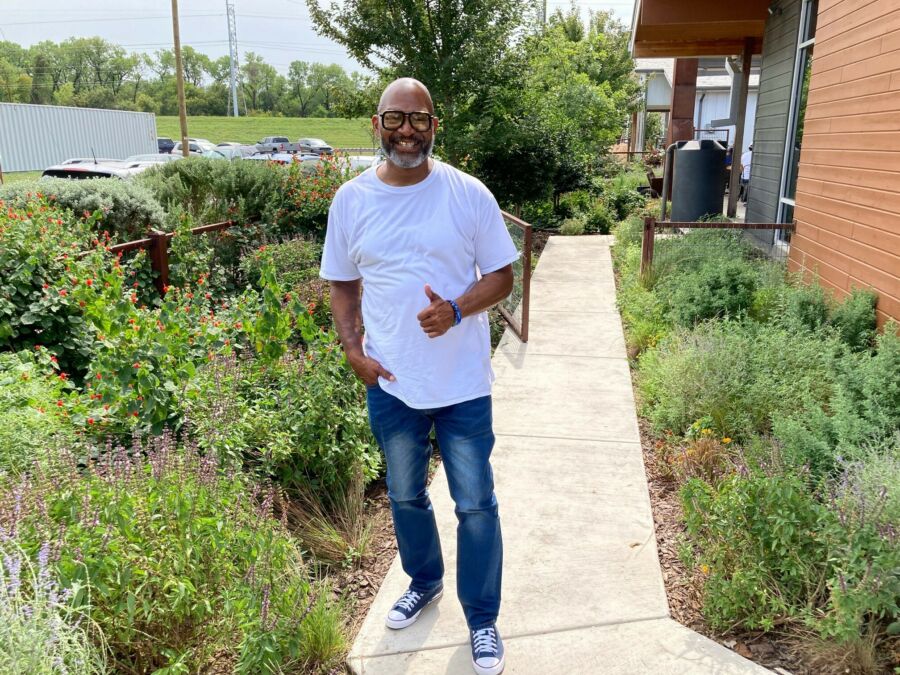
“I started getting involved in street activities, drugs robberies, a variety of things,” Daris says. “It got to the point I got caught up in it. I went to jail, got 10 years’ probation, and got back out. I got in a few fights, but I’ve been fighting my whole life.”
That brush with the law wasn’t enough to turn Daris around.
“I kept on keeping on,” he says. “There was a lot of competition here, so I started leaving the community, getting out, making some money. I had cars, some money saved, a nice place to live, and I kept doing I was doing—until I went to prison. I thought I would be able to talk my way out. I couldn’t. They gave me 16 years. I did six years. I went in at 24, came home at 30.”
This is not uncommon in Bonton. An estimated 85% of the men here have been to prison, poverty is the norm and jobs are scarce.
When Daris arrived back in the community, the challenges he faced seemed insurmountable. He had no job prospects and his health was failing. The dialysis he required several times a week made a job even more inaccessible.
But then he met Daron Babcock, a former entrepreneur who had come to Bonton to live out Christ’s commandment to love our neighbor.
“Daron’s Bible study was next door to my mother’s house,” Daris said. “I was hungry because I couldn’t support myself. Usually I’d go to my mom’s to eat, but I got tired of her trying to push him on me. So I tried to rely on myself.”
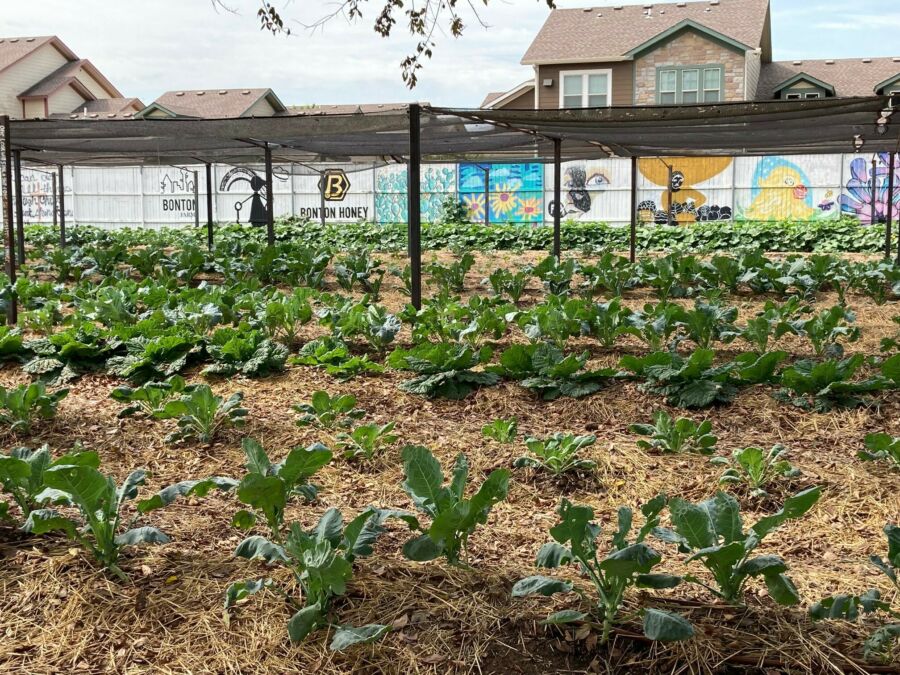
One day, Daron approached Daris.
“I’m struggling, I’m hungry,” Daris recalls. “I’d eaten all my canned goods. I think it had been two and a half days since I’d eaten. I was already having a conversation with God; I knew He made the blind man see, but He had a son down here who was hungry; I wanted to know what He was going to do about it. I looked up, and there was Daron.”
Wary of the white face that looked at him from a truck window, Daris asked Daron what he wanted.
“And he said, ‘I don’t want to eat alone,’” Daris says. “He couldn’t tell I had been praying. I went inside and washed my face. Went back out to his truck. This was the same guy I thought had to be police of some kind, the same guy I despised. But I said ‘Sure, where are we going?’ He asked my favorite. I called his bluff, and I said Pappadeaux. And we went.”
Daris says his “ears and heart were opened” then.
“He told me his story,” Daris says. “How far gone he was. But people refused to give up on him.”
And Daron, in turn, refused to give up on Daris. Once, Daris was called in for a job interview at a nearby company. But when he arrived, all dressed up and ready, he learned that he wasn’t called for a job interview after all—the supervisor had called him in because he looked like the person who had robbed the company.
“I bought myself a suit to go on this interview,” Daris says. “I was clean, man. I had all these people praying for me. I got up and left; I wanted to cry. I thought my only option was going back on the street. I started avoiding Daron again.”
But Daron didn’t avoid Daris.
“When he found me and I told him what happened, he started to cry,” Daris says. “He said ‘I can’t believe they’d do that to us—us.”
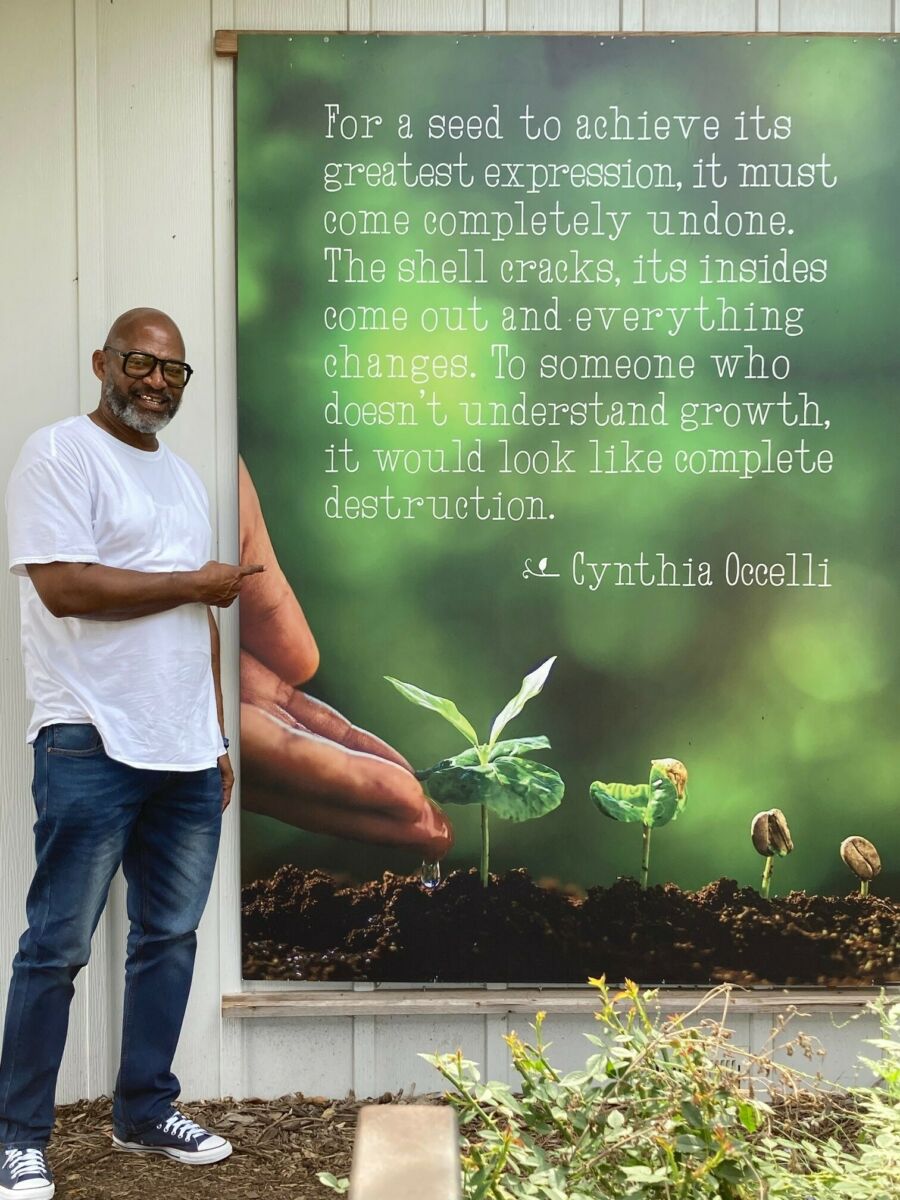
About that time, Daron moved into that dilapidated house next to Daris’ mother. He continued toencourage Daris and other men in Bonton.
“But I had limits because of my dialysis,” Daris says. “Three days a week, they filtered my blood for four hours. One day, Daron asked if he could come with me—if he could drive me to dialysis.”
When Daron questioned the doctors, he learned that Daris needed a kidney.
“Daron said where do I sign up?” Daris say. “I had a guy standing in front of me, who I didn’t like, didn’t trust, didn’t want to give him a chance, but he’s willing to save my life.”
Daron didn’t prove to be a match for Daris—but with the advocacy of Bonton Farms staff, a donor was eventually found. Daris received his new kidney in January 2022.
Bonton Farms
Daris is now the community health and wellness manager at Bonton Farms, and he’d like to see the success of Bonton Farms replicated elsewhere.
“There should be a place like this everywhere,” he says. “It’s not hard—it’s common sense.”
And Daris isn’t wrong; this isn’t complicated at all. Where communities have been cut off and abandoned, we must reconnect. Where relationships have been fractured, we must reach out. And where institutions have been destroyed, we must rebuild. At Bonton Farms, that means meeting essential needs—it started with recognizing that Bonton was a food desert, and the nearest grocery store was a three-hour bus ride away. So Daron Babcock started a small farm to provide healthier food. More businesses have been added, including a tiny home community and a coffee shop.
“Helping people feels better than anything I’ve ever experienced,” Daris says. “Feeding the hungry, meeting needs, loving people. Money can’t buy that feeling.”
For more on Bonton Farms, click here and here.
